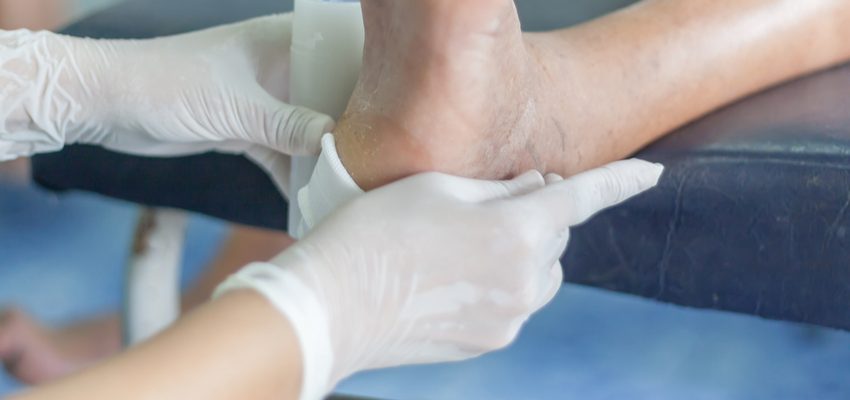Blog

Why Diabetic Patients Need Specialized Wound Care
August 12, 2020 0 Comment Category: Foothill HeightsProper wound care is of utmost importance for diabetic patients. This is because around 20% – 35% of people with diabetes develop a foot ulcer, which can eventually lead to infections and require amputation. Early intervention and specialized wound care can help diabetic patients to avoid such issues and prevent worsening of the condition. Below are some of the reasons why a specialized approach for wound care is recommended to diabetic patients.
Diabetic Wounds Can Be Very Complicated to Treat
Patients with diabetes react to wounds differently than those without any blood sugar problems. The body heals slowly in case of diabetes which means even a small injury may lead to serious risks if not dealt with properly in time. It is seen that the blood glucose fluctuations in diabetes can worsen wounds and can even lead to decreased feeling in the extremities, nerve damage, poor blood circulation, and weakened skin barriers.
Diabetic Wounds Can Lead to Serious Infections
As diabetic patients experience difficulty with wounds healing, it can lead to more complications and infections. Any minor infection can also spread quickly to the other parts of the body and lead to osteomyelitis, resulting in local muscle or bone infection. If infection begins to spread into the bloodstream, then it can also cause sepsis as well. In some cases, improperly managed diabetic wounds can lead to gangrene as well, which can be very serious and require amputation of the limb.
Diabetic Wounds Require an Aggressive Treatment Approach
Diabetic wound care treatment also differs from other forms of wound care. The usual treatments for wound management are not as effective in the case of diabetes patients. That is why it is recommended to follow a specialized wound care plan to deal with the problem. Typically, diabetic wound treatment demands an aggressive and personalized approach, including thorough wound assessment, tissue debridement, infection control with oral/topical antibiotics and dressings, moisture regulation, pressure relief, and more.
Disease management, such as addressing the underlying factors that could worsen the wound and hinder its healing is also a part of diabetic wound care and treatment. This means monitoring blood sugar levels as well, which will, in turn, help to manage the symptoms of diabetes. It is also seen that targeted treatment plans for diabetic wounds provide the best results. That is why consulting with a wound care specialist at the nearest skilled nursing home is recommended to assess and treat diabetic wounds.
You can also get more information on different methods to treat diabetic wounds and how to prevent complications by consulting with the skilled nursing home staff. They can also help you with advanced treatment options like skin grafts and oxygen therapy for a speedy recovery.

leave A comment